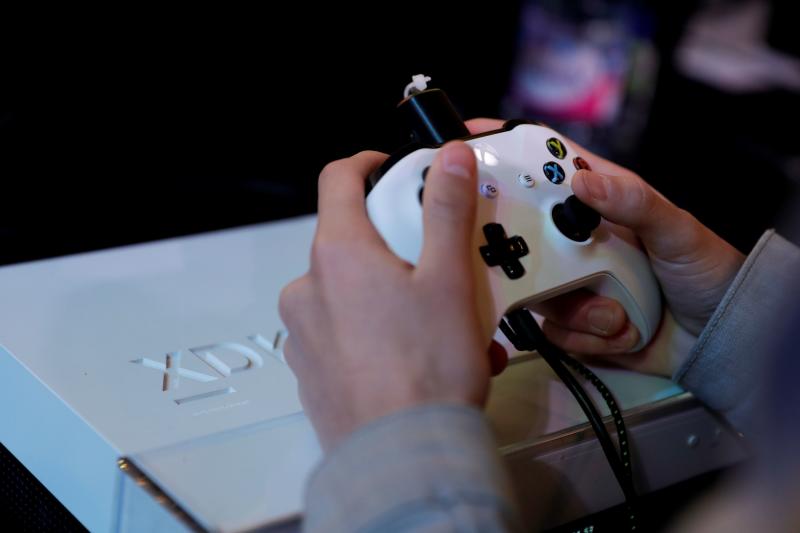Editorial Notes
Japan's problem of gaming addicts: Yomiuri Shimbun
In its editorial, the paper urges Tokyo to come up with better ways to treat gaming addicts.
Sign up now: Get insights on Asia's fast-moving developments

The World Health Organisation estimates that about 2 per cent to 3 per cent of gamers are addicted to playing.
PHOTO: AFP
TOKYO (THE YOMIURI SHIMBUN/ASIA NEWS NETWORK) - Gaming disorder (an addiction to video games), in which excessively playing online and other video games has serious effects on a person's lifestyle and health, has been designated as a mental disorder.
This is expected to lead to progress in ascertaining the true extent of the situation and the development of treatment methods.
The World Health Organisation (WHO) has revised its International Classification of Diseases, which details the names, symptoms and types of diseases, for the first time in 28 years.
The new version includes gaming disorder as one kind of disorder arising from behavioural addiction.
The new classification is scheduled to come into effect in January 2022.
The list includes a person who is unable to control how often and how much time they spend playing video games, a person who puts priority on playing video games over regular daily activities and a person who spends more than one year living a lifestyle that revolves around playing video games.
Anybody who ticks these boxes apparently could have a gaming addiction.
Even if someone plays video games for a long time, they do not necessarily have a gaming addiction if they can control their behaviour, such as by stopping when they should.
The WHO estimates about 2 per cent to 3 per cent of gamers are addicted to playing.
However, this figure is no cause for optimism.
A Health, Labour and Welfare Ministry research team believes a certain proportion of internet addicts, who spend too much time on social media and other online activities, have a gaming addiction.
In particular, the team's analysis found that the majority of the estimated 520,000 junior high and high school students suspected to be internet addicts also had a gaming addiction.
It is alarming that a high proportion of people with this addiction are minors, unlike those addicted to alcohol, gambling on horse racing and other activities.
In some instances, children become too hooked on video games and stop going to school.
After becoming shut-ins at home, they become immersed in online games and, in many cases, do not even eat regularly.
There are various paths that lead to addiction and negative consequences that emerge.
Combat games, which feature violent depictions that people could not stand to watch, and other game genres have become popular.
Abusive language is often exchanged during these games.
During an important time when young people should be laying foundations for their life, such as by studying diligently and building healthy interpersonal relationships, they can end up addicted to video games. This is a tremendous loss for them. It reportedly also can increase the risk of depression and other ailments.
Counseling is the central treatment method for addiction, but only about 25 medical institutions in Japan can handle inquiries seeking such help.
The nation also has a shortage of doctors specialising in this field.
Establishing a proper treatment framework is a major issue to be addressed.
It also will be necessary to develop more effective treatment methods by closely examining the function of addiction-related chemicals in the brain.
Some aspects of these treatments might be shared by treatments for gambling addiction.
Opportunities to play video games are available everywhere, including on personal computers and smartphones.
To ensure children do not slip into gaming addiction, the adults around them should keep alert and watch for signs of a problem developing.
The Yomiuri Shimbun is a member of The Straits Times media partner Asia News Network, an alliance of 23 news media entities.


